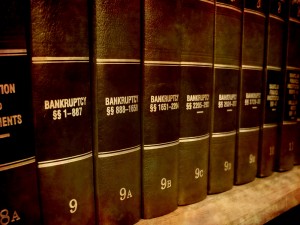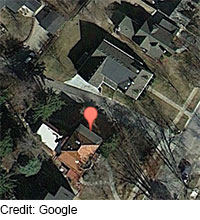Some noteworthy cases this week, as reported by our Daily Summary Writers.
The 10th Circuit reversed a sentencing ruling for a defendant found to be practicing law without a license. In US v. Kieffer, the Court found that “By all appearances, Defendant Howard Kieffer had a successful nationwide criminal law practice.” What he didn’t have was a license to go with that practice. He never attended law school, sat for a bar exam, or received a license to practice law. He was convicted of mail fraud, making false statements, wire fraud, and contempt of court. On appeal, the 10th Circuit remanded for resentencing, finding errors in the trial court’s sentencing calculations.
The 5th Circuit issued a ruling involving the First Amendment and journalistic access. In United States v. Aldawsari, a journalist appealed the district court’s gag order preventing a terrorism suspect and his legal team from speaking to the media. The journalist argued that the gag order violated his First and Fifth Amendment rights. The 5th Circuit concluded that the gag order affected appellant’s right to gather news and therefore, he had standing to challenge it. However, on the merits, appellant had not shown that the gag order violated the First Amendment since the gag order was not overly broad on its face. Additionally, the gag order did not violate the Fifth Amendment because the denial of his motion to intervene did not limit his right to earn a living through news gathering in violation of his due process rights.
 Last week, Representative Benjamin Quayle (R-AZ) introduced the Prohibiting Back-door Amnesty Act. The Act seeks to nullify President Obama’s recent immigration policy change by rescinding various memoranda and directives that call for the exercise of prosecutorial discretion in not pursuing undocumented children.
Last week, Representative Benjamin Quayle (R-AZ) introduced the Prohibiting Back-door Amnesty Act. The Act seeks to nullify President Obama’s recent immigration policy change by rescinding various memoranda and directives that call for the exercise of prosecutorial discretion in not pursuing undocumented children.
 Several privacy lawsuits against Google, Inc. have been consolidated in the U.S. District Court for the District of Delaware following a ruling by the Judicial Panel on Multidistrict Litigation (JPML). In
Several privacy lawsuits against Google, Inc. have been consolidated in the U.S. District Court for the District of Delaware following a ruling by the Judicial Panel on Multidistrict Litigation (JPML). In 
 Last week, President Obama
Last week, President Obama  Google and AOL were sued for patent infringement Thursday by New Jersey-based Suffolk Technologies, LLC over their Internet search summary descriptions, or
Google and AOL were sued for patent infringement Thursday by New Jersey-based Suffolk Technologies, LLC over their Internet search summary descriptions, or  For several years, Michael Feloney used his neighbor Robert Baye’s driveway to turn his vehicle to enter his garage. Eventually Baye decided to build a retaining wall on his driveway, which prevented Feloney from using Baye’s driveway. Feloney sued Baye, requesting the district court to impose a prescriptive easement on Baye’s driveway for ingress and egress. The district court granted summary judgment for Baye, concluding (1) Feloney’s use of the driveway was permissive under the “unenclosed land” rule, which provides an exception to the rule presuming adverseness when the use is over unenclosed land; and (2) thus Feloney could not prove the elements required for a prescriptive easement. The Supreme Court affirmed but for different reasons, holding (1) the presumption of permissiveness arises when the land is unenclosed wilderness and does not apply in urban settings such as in this case; (2) when the owner of a property has opened or maintained a right of way for his own use and the claimant’s use appears to be in common with that use, the presumption arises that the use is permissive; and (3) Feloney’s use of Baye’s driveway was presumptively permissive under this rationale.
For several years, Michael Feloney used his neighbor Robert Baye’s driveway to turn his vehicle to enter his garage. Eventually Baye decided to build a retaining wall on his driveway, which prevented Feloney from using Baye’s driveway. Feloney sued Baye, requesting the district court to impose a prescriptive easement on Baye’s driveway for ingress and egress. The district court granted summary judgment for Baye, concluding (1) Feloney’s use of the driveway was permissive under the “unenclosed land” rule, which provides an exception to the rule presuming adverseness when the use is over unenclosed land; and (2) thus Feloney could not prove the elements required for a prescriptive easement. The Supreme Court affirmed but for different reasons, holding (1) the presumption of permissiveness arises when the land is unenclosed wilderness and does not apply in urban settings such as in this case; (2) when the owner of a property has opened or maintained a right of way for his own use and the claimant’s use appears to be in common with that use, the presumption arises that the use is permissive; and (3) Feloney’s use of Baye’s driveway was presumptively permissive under this rationale.